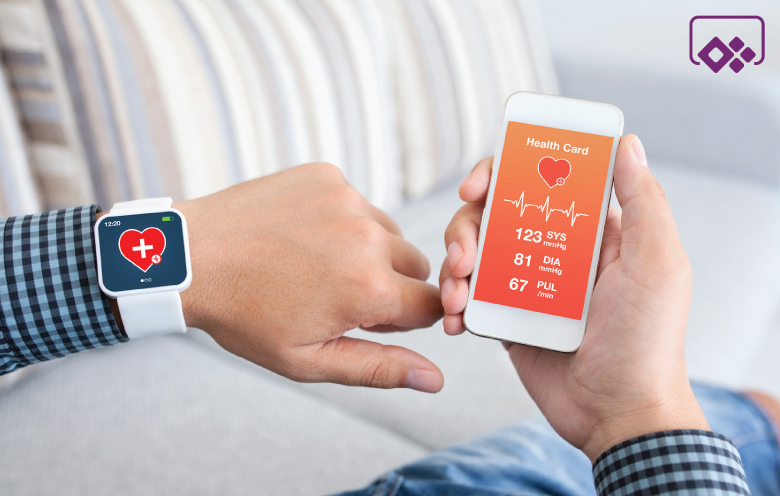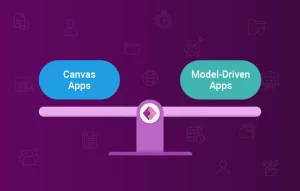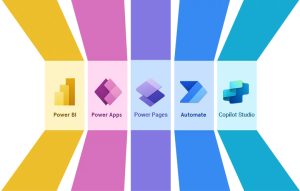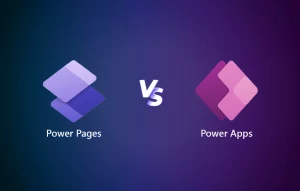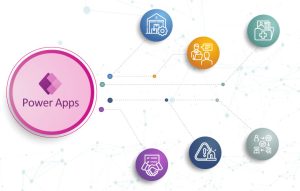Healthcare providers around the world are looking for ways to deliver quality patient care. Several healthcare organizations operate under tremendous pressure and find it challenging to meet the demands of today’s well-informed patients. To address such requirements, Microsoft introduced PowerApps as one of the key products of the Office 365 suite to help organizations meet their end goals. Many healthcare organizations have failed to understand the true potential of PowerApps. So, let’s know more about PowerApps.
What is PowerApps?
First of all, applications built using PowerApps are no different than business apps. PowerApps offers an amazing drag-and-drop user interface that enables organizations to build healthcare apps with little to no coding. Importantly, apps created using PowerApps are built with the ability to interact with Office 365 workloads. Therefore, your apps will easily sync with other Microsoft data services such as Outlook, Tasks and Calendar. You can read more about PowerApps in our blog: Unveiling the potential of Microsoft PowerApps.
Today, PowerApps is identified among the most popular tools of Microsoft and paving its way to assist healthcare providers in delivering value-based patient care. If your organization has been using Microsoft Office 365, you probably already know about Microsoft PowerApps. And, if you have not, this blog post will tell you everything you need to know about Microsoft PowerApps.
Here are the reasons to leverage PowerApps in the healthcare sector:
1. Unify data integration across multiple sources
The first stage in the journey towards quality patient care starts with better communication, thorough diagnosis and enhanced patient outcomes. Practitioners can extract patient history from multiple sources across the continuum of care to provide quality patient care.
Microsoft’s Common Data Services (CDS) along with PowerApps enables your employees to access patients’ data from multiple sources such as Outlook, Excel, PowerPoint, OneDrive, Dropbox, Dynamics 365, Salesforce, SharePoint and many more. This ability allows medical practitioners to conveniently access and share relevant patient data on-the-go, regardless of their location.
2. Increase the efficiency of healthcare practitioners
With the help of PowerApps, numerous tasks such as onboarding medical students, patient registrations, managing clinical handover among doctors and nurses, processing payment approvals and many other requests can be automated. Additionally, apps can be created and deployed in no time to assist practitioners. Healthcare practitioners will be able to focus more on patient care related tasks.
3. Complete user control, security, and compliance
With the release of the General Data Protection Regulation (GDPR) compliance and ever-increasing healthcare policies, the healthcare industry is constantly under pressure to keep activities recorded to adhere to the compliance standards. It has also become crucial for healthcare providers to administer data policies, authorizations and access controls. PowerApps is a secure platform that provides humungous benefits to healthcare providers. Apps built in PowerApps automatically connect to Microsoft’s Active Directory Domain Service (ADDS), which authenticates, authorizes and enforces all apps and user’s security policies. Microsoft has listed several steps to protect customer data while using PowerApps that companies can follow to adhere to GDPR compliance.
4. Automate workflows and internal processes
PowerApps deployment in healthcare helps organizations to optimize automated functions and processes without any manual input. For instance, an authorized user can send important information, news and updates to staff and patients to their mobile phones using push notifications. Moreover, with PowerApps you can go a step ahead and use it for employee reporting and replacing issues during emergencies.
5. Enhance your PowerApps
If you’re a modern growing healthcare provider, you must know that the market is evolving with applications everywhere. From workflows to patient care, all kinds of operations are automated for better efficiency. The cost of building, distributing, and publishing new applications with native development costs can be expensive for healthcare providers. Moreover, the complexity of native development will increase the time and efforts of deploying any app.
The good thing is that PowerApps enables you with built-in capability of quick deployment, multi-data sources, connectivity and easy-to-maintain characteristics, and helps you in reducing the overall cost of building apps to a significant level. However, you will require help with streamlining your existing data, enabling agility, customizing apps to meet your business goals, planning and strategizing goals to align with other business processes to drive efficiency.
The final say
As healthcare providers around the world look for opportunities for building business applications, Microsoft’s PowerApps acts as an ultimate tool for app production. Basically, Microsoft Office 365 can help to unify healthcare operations and patient engagement within a healthcare setting. At Softweb Solutions, our Microsoft experts can help you with complete assistance concerning PowerApps from analysis, designing, implementation, planning, deployment, to support. If you are among those healthcare providers who are looking for efficient ways to improve quality patient care using PowerApps integration services, we can help.


